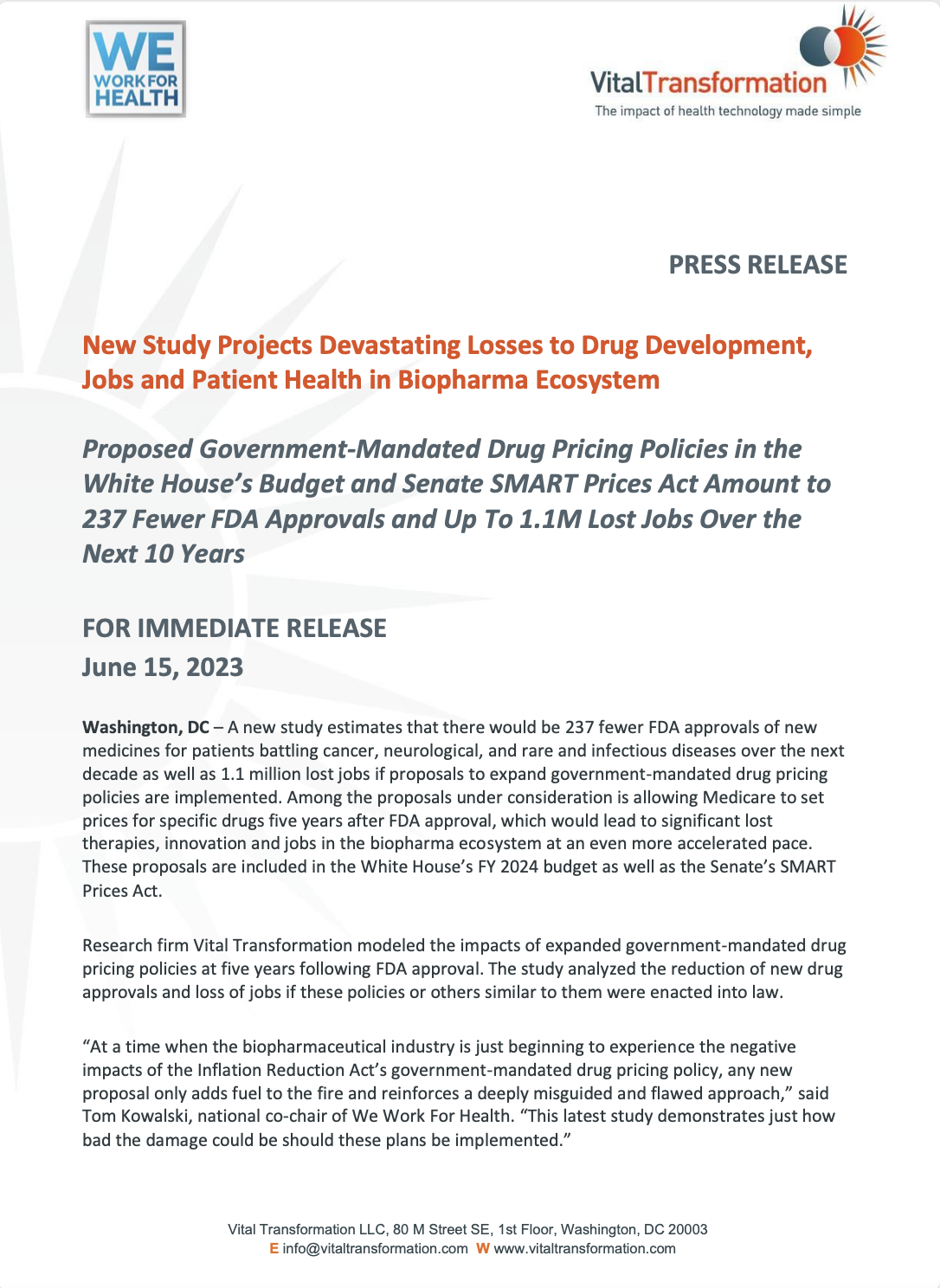The Executive Summary
Conclusions and Implications of SPA
- SPA reduces net earnings for a 44 company cohort by 37%, but these impacts are highly concentrated in a few firms representing a substantial loss of their free cashflow for pipeline investments.
- As measured by EBIT (annual net earnings):
- The SPA induced revenue reductions exceed 500% of the annual earnings for a quarter of the 44 companies in our cohort.
- The SPA penalizes the most innovative, successful therapies which fund an outsized amount innovation in the U.S. biopharma ecosystem.
- The SPA penalizes successful biopharma companies.
- At the firm level, the revenue reductions caused by the SPA imply a 68% reduction in future FDA approvals within our cohort.
- Impacts are most concentrated in a few firms. For each of the most impacted companies, between 8 and 14 of the medicines selected for price setting would likely not have been developed if SPA had been in place prior to those investment decisions.
- SPA will reduce investments into 50 different indications; these indications range from micro orphan conditions such as Ebola, to large anti-infective therapies targeting Epstein Barr virus and chronic pain (300 million and 50 million disease prevalence respectively).
- We model losses of between 146,000 – 223,000 direct biopharmaceutical industry jobs and 730,000 – 1,100,000 total jobs across the U.S. economy.





